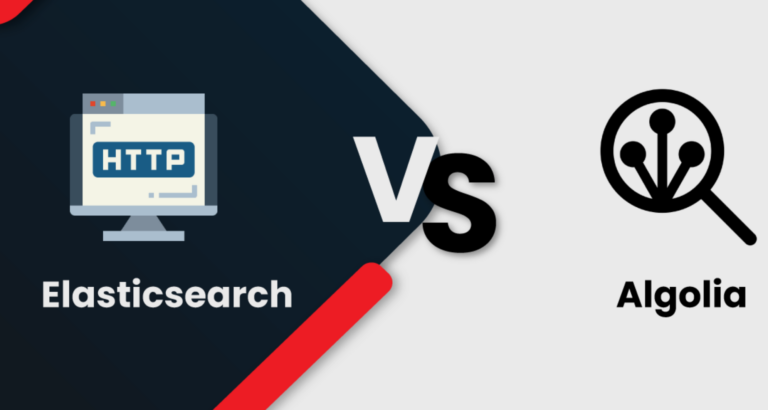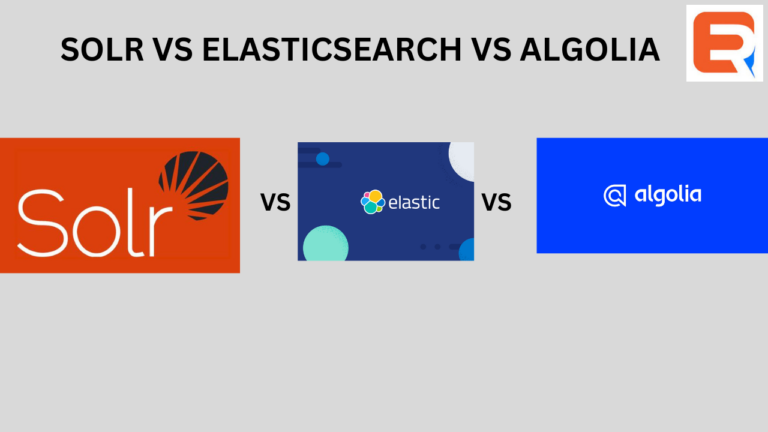In the world of search engines, Algolia and Elasticsearch have emerged as popular choices for businesses seeking efficient and powerful search capabilities. Both platforms offer robust features and functionalities that enhance search experiences. In this article, we will compare Algolia and Elasticsearch across various factors to help you understand their differences and choose the right search engine for your business.
Functionality and Ease of Use:
Algolia:
Algolia is a hosted search engine that provides a user-friendly interface and straightforward implementation process. It offers advanced search capabilities, including typo tolerance, synonyms, faceted search, and geolocation search. Algolia’s intuitive dashboard allows for easy configuration of search settings, relevancy ranking, and indexing rules. It also provides pre-built UI components and libraries to simplify front-end integration.
Elasticsearch:
Elasticsearch is an open-source search engine built on top of the Lucene library. It offers a wide range of features, including full-text search, fuzzy matching, geo-location search, and aggregations. Elasticsearch provides a flexible and scalable solution, allowing businesses to customize the search functionality according to their specific needs. However, the initial setup and configuration of Elasticsearch can be more complex compared to Algolia, requiring technical expertise and knowledge of the underlying infrastructure.
Scalability and Performance:
Algolia:
Algolia is designed for scalability and high performance. It offers instant search results and fast response times, even with large datasets. Algolia’s distributed architecture ensures reliability and allows for horizontal scaling, accommodating increased search traffic and data volume. Additionally, Algolia provides automatic load balancing, replication, and real-time indexing, ensuring consistent performance and minimal downtime.
Elasticsearch:
Elasticsearch is known for its distributed nature and ability to handle large amounts of data. It can be deployed across multiple nodes to distribute indexing and querying workloads, providing scalability and fault tolerance. Elasticsearch’s performance is highly dependent on hardware resources and proper configuration. With the right setup and optimization, it can deliver fast search responses. However, fine-tuning Elasticsearch for optimal performance may require more technical expertise and monitoring.
Search Customization and Relevance:
Algolia:
Algolia offers a range of customization options to fine-tune search results and relevance. It provides a comprehensive set of relevance settings, including attribute weighting, filtering, and ranking rules. Algolia’s rule-based engine allows businesses to control search results based on specific criteria, such as promoting certain products or boosting results based on user behaviour. The platform also offers A/B testing capabilities to experiment and optimize search relevance.
Elasticsearch:
Elasticsearch provides extensive customization capabilities through its query DSL (Domain-Specific Language). It allows businesses to define complex search queries, aggregations, filters, and sorting criteria. Elasticsearch’s relevance scoring algorithm is highly configurable, enabling businesses to fine-tune relevance based on various factors. However, achieving optimal relevance may require a deeper understanding of Elasticsearch’s querying capabilities and relevance scoring mechanisms.
Community and Ecosystem:
Algolia:
Algolia has a strong and active developer community. It provides comprehensive documentation, tutorials, and guides to assist developers in implementing and optimizing search experiences. Algolia also offers client libraries and plugins for various programming languages and platforms, making integration easier for developers. Additionally, Algolia has a dedicated support team that provides assistance and troubleshooting for its customers.
Elasticsearch:
Elasticsearch benefits from a large and vibrant open-source community. It has an extensive ecosystem of plugins, integrations, and community-contributed modules that enhance its functionality and integration with other technologies. The community-driven nature of Elasticsearch ensures ongoing development, frequent updates, and a wealth of community resources, including forums, blogs, and user groups.
Conclusion:
Algolia and Elasticsearch are both powerful search solutions, but they have some key differences that make them suitable for different use cases.
Algolia is a hosted search platform that offers a user-friendly and developer-friendly experience. It excels in providing fast and relevant search results out of the box, with features like typo tolerance, synonym matching, and geolocation search. Algolia is particularly well-suited for applications that require real-time search, such as e-commerce websites or content-heavy platforms. It provides easy-to-use APIs, robust documentation, and excellent customer support.
On the other hand, Elasticsearch is an open-source distributed search and analytics engine that offers more flexibility and scalability. It is part of the Elastic Stack, which includes additional tools like Logstash and Kibana for data ingestion and visualization. Elasticsearch is highly customizable and can handle large volumes of data, making it ideal for applications that require complex search queries, data analysis, and log monitoring. It is often used in use cases such as log analysis, data exploration, and enterprise search.




